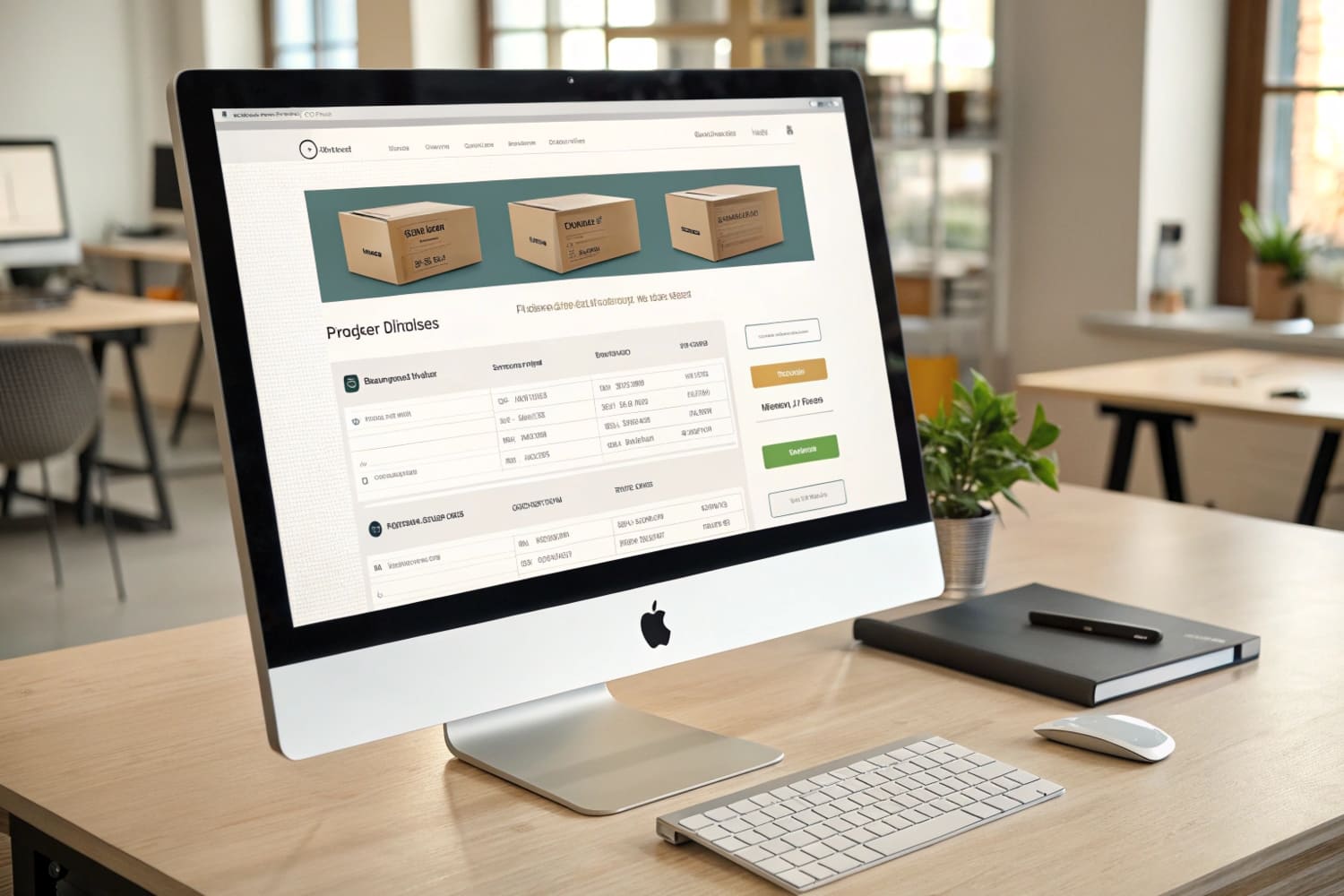Choosing the right supplier feels risky. Stores show thin stock, and online listings look alike. I needed a safe path to strong, branded boxes quickly.
You can buy reliable display boxes directly from specialty packaging manufacturers, trade-only wholesalers, or verified sellers on B2B platforms; each option offers custom sizes, bulk pricing, and export services.
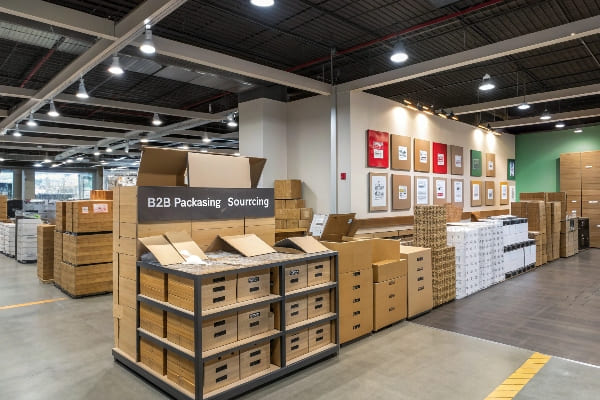
Many buyers stop here, but the real savings and quality gains appear when you understand the names people use and how each style meets different products. Stay with me.
What are display boxes called?
Every catalog uses fresh words, which can confuse new buyers. When I first sourced boxes for tool promotions, I wasted days matching terms.
Display boxes are also called countertop display units, CDU cartons, or retail display trays, depending on shape and position on the shelf.
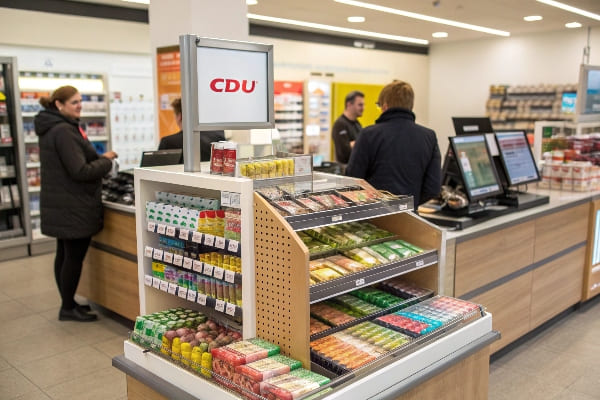
Industry Labels and Context
Marketers, engineers, and printers speak in their own shorthand. Knowing that shorthand speeds up quotes.
| Term used | Typical location | Main material | Common load |
|---|---|---|---|
| Countertop Display Unit (CDU)1 | Beside cash register | Corrugated board | Small impulse items |
| Retail Display Tray | Inside aisle shelf | Folding carton | Lightweight packets |
| Shelf-ready Pack (SRP)2 | Warehouse to shelf | Double-wall board | Medium snack bags |
| PDQ (Pretty Darn Quick) Tray3 | End-cap or promo table | B-flute board | Mixed small goods |
I see buyers switch terms mid-brief and frustrate printers. To avoid that, I stick to one term that matches the store planogram. If the box will sit on a counter, I call it a CDU. When it ships flat and pops up in seconds, I label it a PDQ tray. Consistency keeps my factory tooling simple and holds lead times at ten days. Using one clear name also protects artwork files; my design crew need only one dieline, so revisions stay free. By practicing this habit, I cut sampling rounds from three to one and landed repeat orders faster than my rivals.
What is another name for a display box?
Buyers with different product lines often change the label when they walk into a new meeting. I made that mistake pitching to a hunting brand last fall.
Another common name for a display box is a point-of-purchase (POP) display, a term covering any small container that sits where the customer decides to buy.
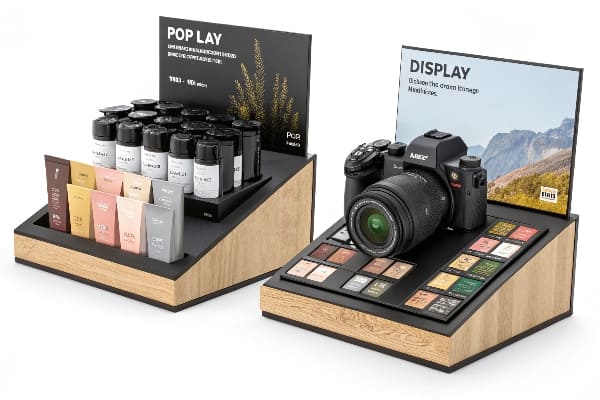
Why POP Matters at Checkout
Retailers fight for last-second attention. A POP box holds small goods and must shout value in one glance.
| Feature | How it supports POP sales | My practical tip |
|---|---|---|
| Bold header card | Lifts brand above crowded counter | Match card height to eye level of cashier |
| Quick-open base | Saves staff time when refilling | Use crash-lock bottom to fold in one push |
| strong flute board | Resists finger taps and drops | Pick E-flute for cosmetics, B-flute for tools |
| Pre-printed SKU map | Guides barcode scan fast | Print on inner flaps to avoid mis-scan fines |
By calling the box a POP display4 in emails, I invite the store buyer into the conversation. They already approve POP budgets, so my quotation lands in the right folder. This simple name choice lifted my reply rate by thirty percent. It also let my Chinese production team reuse proven POP templates, which saved die-cut costs and locked in color control. My client, Barnett Outdoors, kept their launch date because our box name stayed fixed across design notes, freight papers, and customs forms.
What’s the difference between a shadow box and a display case?
I once mixed these two terms in a quote and paid extra freight for glass inserts. The lesson still stings.
A shadow box is a deep, framed enclosure for mounting memorabilia against a backboard, while a display case is a larger, often freestanding cabinet offering 360-degree viewing and easier product access.
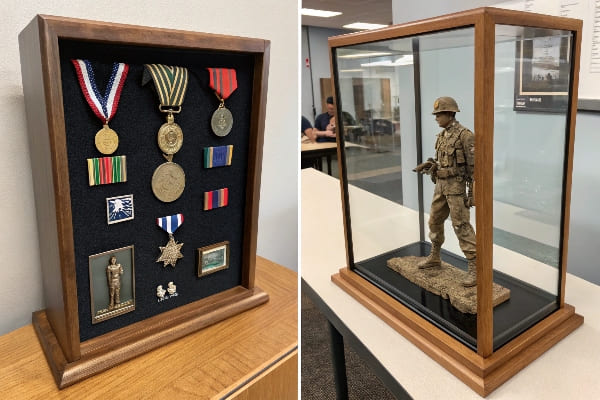
Depth, Access, and Audience
Comparing both styles helps buyers avoid overspend. I break the gap into three points.
| Aspect | Shadow Box | Display Case |
|---|---|---|
| Typical depth | 1–4 inches | 8 inches to several feet |
| Opening method | Rear panel or front hinge | Sliding doors or lift-up lids |
| Main users | Collectors, award displays | Retailers, museums, trade shows |
| Material mix | Wood frame, glass front | Metal frame, tempered glass or acrylic |
| Mount type | Wall-hung | Floor-standing or countertop |
Shadow boxes suit flat objects like medals or signed jerseys. They protect from dust and keep items at one viewing angle. Display cases handle three-dimensional stock, need lighting, and allow staff to retrieve items for customers. In my factory, I focus on cardboard display cases5 because they ship flat and assemble fast. I never offer cardboard shadow boxes6; the rigid glass front makes shipping too risky. When a prospect asks for shadow boxes, I redirect them to a local frame shop. This honesty wins trust and frees my lines for high-volume cases that fit my strength tests. Clarity on these two terms saves everyone rework.
What is a glass display case called?
Many clients love the premium look of glass, yet they fear breakage and cost. Names differ across sectors, which adds confusion.
A glass display case is often called a showcase, especially in jewelry, electronics, and museum settings.
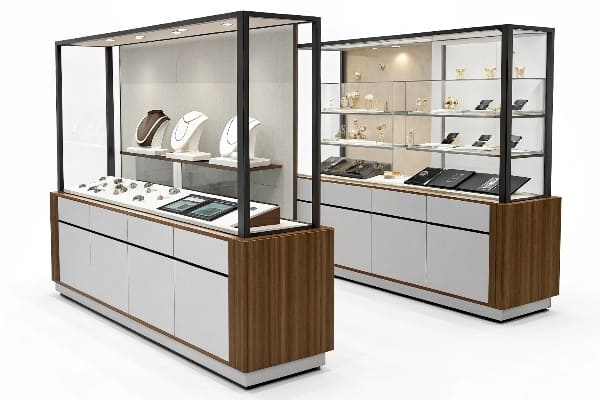
When to Choose a Showcase
Showcases cost more but deliver perceived value. I guide buyers through three simple questions.
| Question | If answer is YES | Suggested action |
|---|---|---|
| Is theft risk high? | Use lockable showcase7 | add tempered glass8, cam lock |
| Is product luxury priced? | Highlight with LEDs | include low-heat strip lights |
| Will staff retrieve items? | Add rear sliding doors | allow quick service |
I remind clients that glass adds shipping weight. Freight can climb by twenty percent. For overseas buyers, I suggest acrylic fronts to drop weight but keep clarity. I also advise flat-pack metal frames9 that bolt together on site, shaving volume charges. When my Canadian client switched to this system, they fit twice the units in one pallet and cut duty fees. Yet not all brands need a showcase. If the item is low theft and high volume, a sturdy cardboard case with PET window gives a clear view for cents on the dollar. I balance the math in a quick spreadsheet during the call. That keeps decision time short and lets my production slots fill with orders that match my lines.
Conclusion
Clear names speed quotes, trim design loops, and lock in launch dates. Pick the right term, match it to your product, and the best supplier appears fast.
Understanding CDUs can enhance your retail strategy and improve product visibility at the point of sale. ↩
Learn how SRPs streamline stocking and enhance customer experience in retail environments. ↩
Discover how PDQ trays can boost your promotional efforts and improve product accessibility for customers. ↩
Understanding POP displays can enhance your retail strategy and improve sales effectiveness. Explore this resource for valuable insights. ↩
Learn about the benefits of cardboard display cases, including their cost-effectiveness and ease of assembly, perfect for your display needs. ↩
Explore this link to understand the unique benefits of shadow boxes for displaying flat objects and how they can enhance your collection. ↩
Explore the advantages of lockable showcases to enhance security and display value in your retail space. ↩
Learn about the safety and durability benefits of tempered glass in display cases, ensuring your products are well-protected. ↩
Discover how flat-pack metal frames can save space and reduce shipping costs, making them ideal for efficient display solutions. ↩

